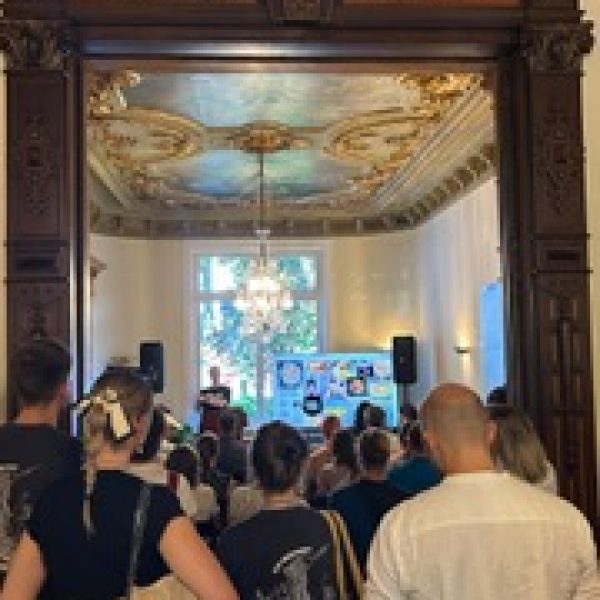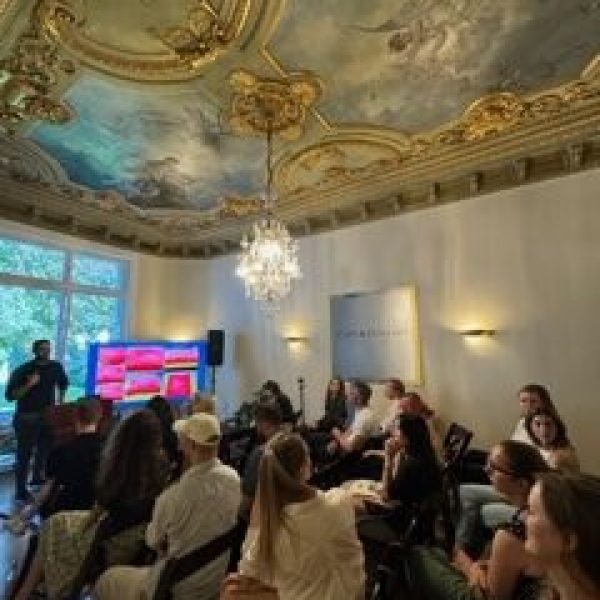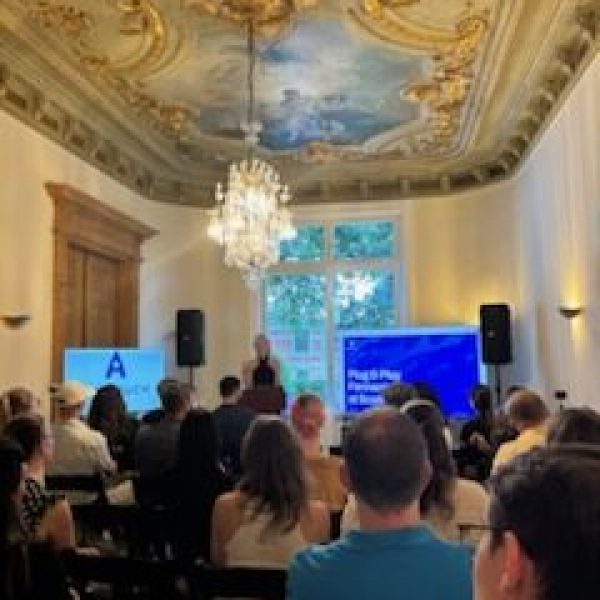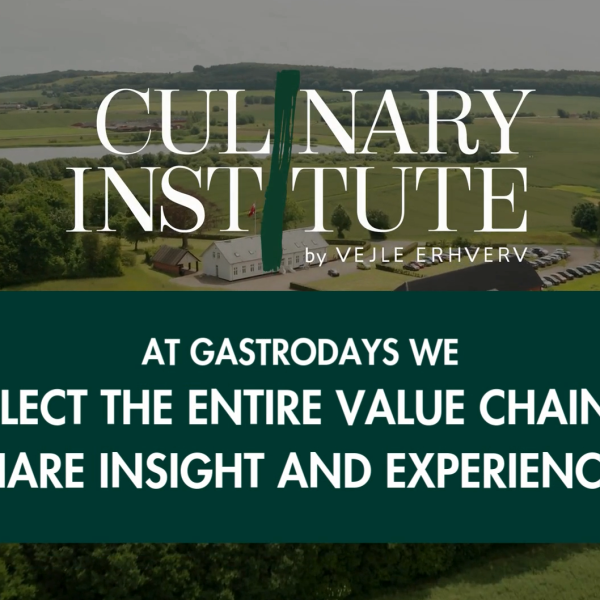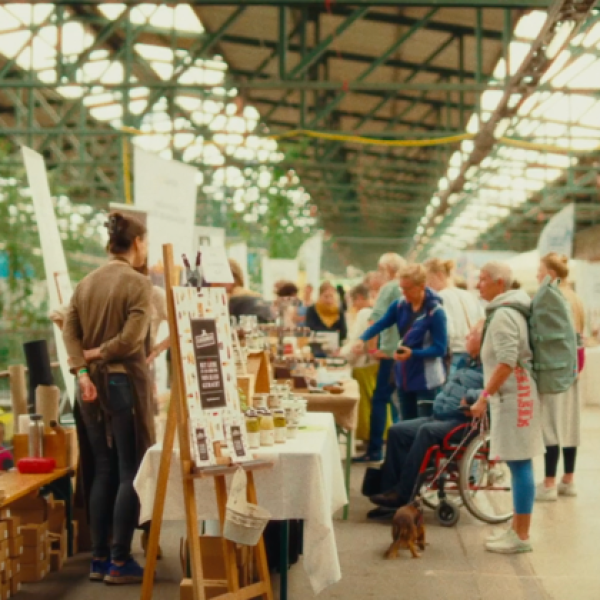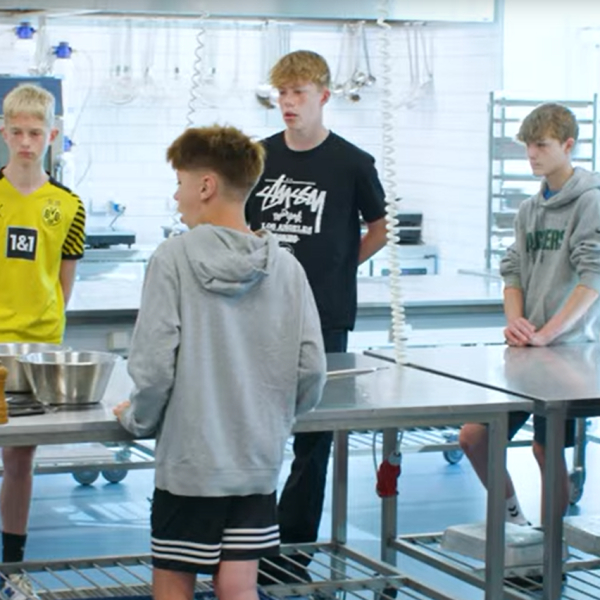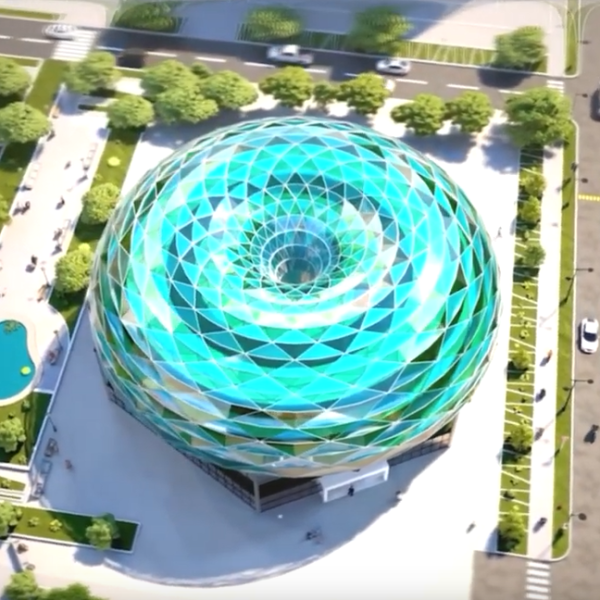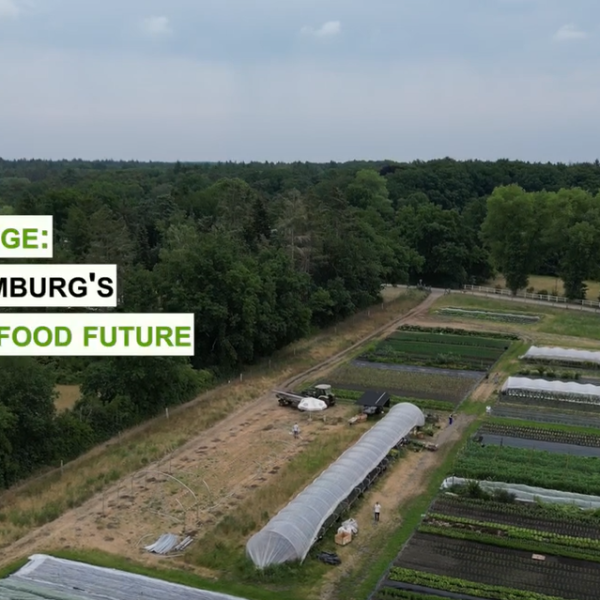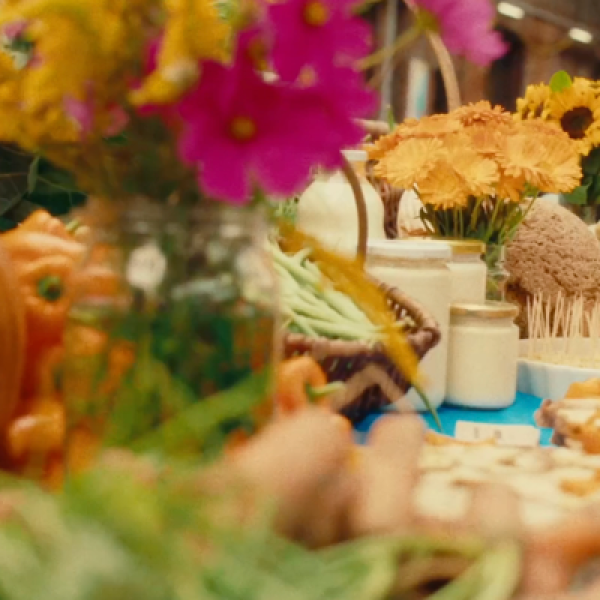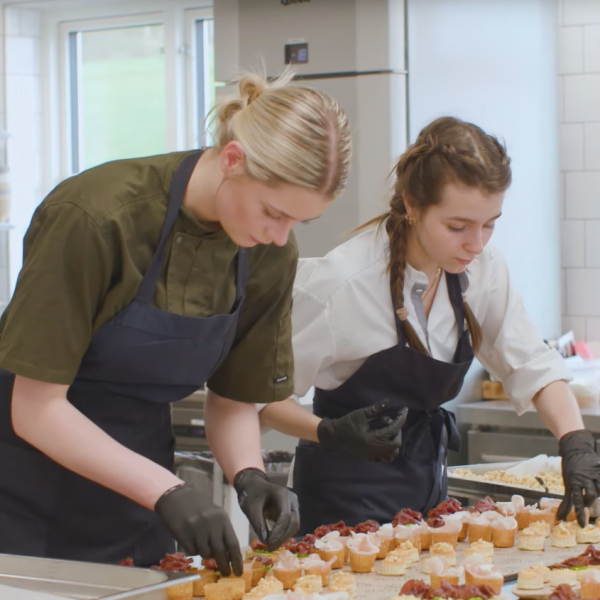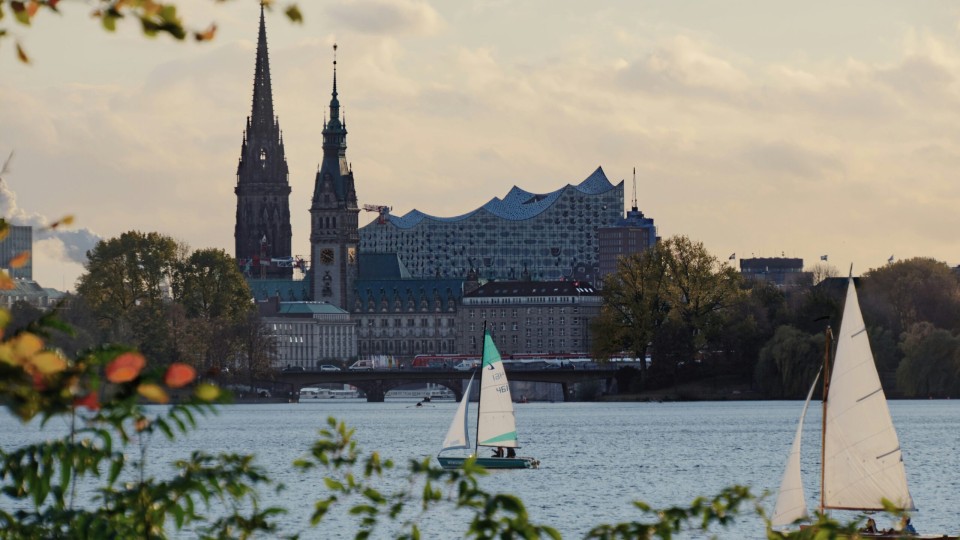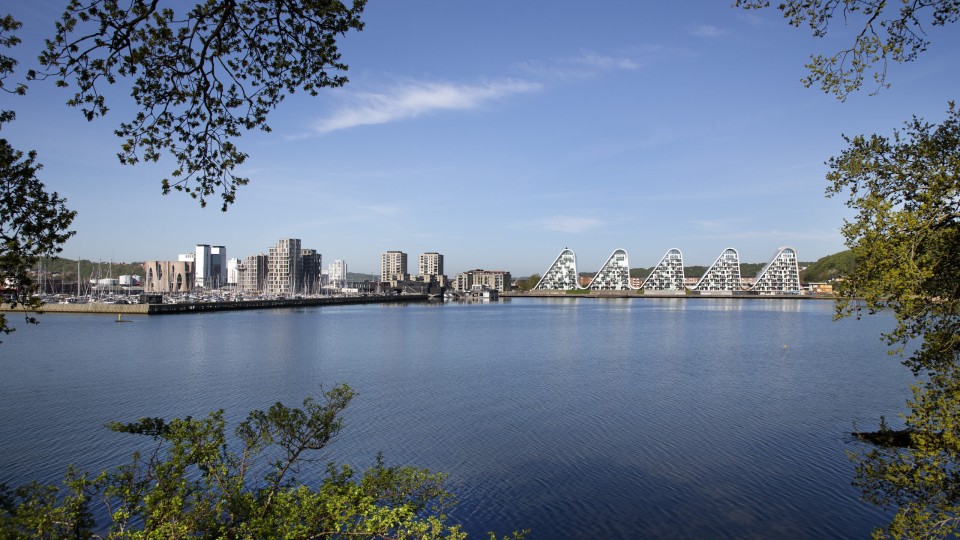Changing dietary habits is a considerable challenge for many individuals. Effective communication tools and approaches are essential to inform and engage the demand side, encompassing both food professionals and citizens, in adopting a more plant-rich diet and understanding the potential of new foods.
This section focuses on providing diverse approaches to engage and motivate the demand side in this process. It offers a range of methods, including a virtual 3D exhibit, food festivals, educational programs, practical demonstrations and supporting ini-tiatives that are driving sustainable food practices and fostering community engagement. These efforts are complemented by social and traditional media communication to encourage professional interest and citizen involvement.
Together, these initiatives demonstrate a commitment to promoting sustainable eating habits and driving positive change in the food system.
How to do it
Suggested actions
- Develop communication campaigns and education programs to inform and engage the demand side in adopting a plant-rich diet.
- Organise food festivals and local cooking activities to expose citizens to climate-friendly food options.
- Engage relevant stakeholders, including school boards, cultural centres, and politicians.
- Utilise virtual exhibits, events, and participation in conferences to amplify the message through social media.
- Support food professionals in public kitchens to enhance communication with end-users and colleagues.
- Plan for financial support and partnerships to ensure successful implementation.
Local adaptations
Vejle, Denmark
In Vejle, the Culinary Institute by Vejle Erhverv organises a range of activities focused on promoting plant-rich and sustainable meals. These activities include:
- GastroDays: Combining cooking and knowledge-sharing sessions, where industry experts and chefs impart their insights on creating flavorful plant-based dishes, utilising local ingredients, and reducing food waste.
- Bælgdag/Day of Pulses: A dedicated event showcasing Danish-grown beans, peas, and lentils. Food producers, chefs, and other professionals gather at a local farm to explore the culinary potential of these pulses, with young chefs crafting fine dining snacks to highlight their versatility.
- Bælgdysten/The Great Bean Off: An open cooking competition challenging participants to create dishes com-prising at least 50% pulses. Both professional and amateur chefs can participate.
- Young Food Talents: A program designed for school children with a keen interest in food and cooking. Participants are introduced to the culinary world and taught a professional approach to cooking, emphasising plant-based ingredients and taste.
These initiatives are complemented by robust communication efforts on social media and, whenever feasible, in tradi-tional media outlets. Together, these activities aim to foster professional interest and engagement in producing plant-rich meals, utilising local produce, and minimising food waste. Additionally, they seek to inspire citizens to embrace more sustainable eating habits.
Hamburg, Germany
Hamburg has a few festivals and programs promoting a better understanding of our food industry and the need for sustainable food systems:
- Open Mouth Food Festival & Green Food Festival: launched in 2023 this is an annual communication highlight featuring startups, restaurants, and sustainable food initiatives. Focus is on farm to table, regional products, zero-waste strategies and allows restaurants and food providers to join the food community trying to build a more sustainable food ecosystem. It will also engage citizens positively toward healthy food choices.
- Food Innovation Camp: Since 2017, the Food Innovation Camp (FIC) has been the industry meeting place for the sustainable food scene, bringing together top decision-makers from retail, gastronomy, investment, and poli-tics. This year with up to 85 innovative start-ups will feature an expo, conference, matchmaking, over 30 start-up pitches, and the Show Kitchen, where chefs will prepare innovative products and create new dishes. Attendees can also participate in talks, panel discussions, and workshops on topics such as financing and patents, as well as take advantage of speed dating and one-to-one matchmaking opportunities.
- What the Health? New Food: Is it healthy?: Event and BBQ for students and consumers hosted by Foodworks e.V., Aufbruch Hamburg, and DOWN4. We will invite startups from New Foods to discuss their products, tech-nologies, their nutritional value, and they will have the opportunity to taste some of the products. The Future Food Campus Metaverse will also be presented for participants to engage virtually and learn more about new foods, regenerative farming, vertical farming, and circular systems.
These events will be featured on social media and be recorded for sharing on other media outlets. The initiatives all aim to educate and engage citizens to better understand the potential and opportunities in transforming our food sys-tems for people and planetary health. They also invite the larger food community to collaborate and communicate the need to build more sustainable systems for the food industry, politicians, and civil society.
KISMET Actions & Tools
Gastro Days (Vejle)
The Vejle local innovation partnership has organized several Gastro Days for food and nutrition professionals, chefs, producers, and others working in the food industry. These key actors play a crucial role in promoting sus-tainable food choices. Their cooking not only inspires more plant-rich food habits, but their purchasing power can significantly influence the market by driving demand for sustainable produce.
The events have focused on various aspects of building more sustainable food systems, such as incorporating Danish-grown legumes, cooking with seasonal ingredients, and reducing food waste. Some Gastro Days featured expert presentations on specific topics, followed by hands-on kitchen workshops. Others included visits to food producers or actors showcasing best practices in sustainable food solutions.
Watch their explanatory video about Gastro Days or explore an example where participants visited a local hotel and conference center. The visit inspired attendees to use locally grown produce while minimizing food waste.
Young Food Talent Programme (Vejle)
Young people have a significant role to play in creating sustainable food systems. To encourage their interest, we’ve developed a talent program for elementary school pupils. The program inspires students to explore plant-rich cook-ing while also fostering a general passion for cooking, with the hope that some will consider careers in the food in-dustry.
In a professional setting, the young participants are mentored by chef and Head of the Culinary Institute by Vejle Erhverv, Per Mandrup. The dishes they prepare always have a sustainable element. However, rather than focusing on labels like plant-rich or climate-friendly, the program emphasizes skill-building and practical cooking techniques.
By supporting these young talents, we aim to spark their enthusiasm for cooking and sustainability. At the same time, their growing interest can help promote better food practices among their families and friends.
Watch the video to hear the students share why they enjoy the program and learn more from Per Mandrup about how it works.
Open Mouth Festival & Green Food Festival (Hamburg)
The festivals were launched in 2023 and are annual communication highlights featuring startups, restaurants, and sustainable food initiatives. Focus is on farm to table, regional products, zero-waste strategies and allows restau-rants and food providers to join the food community trying to build a more sustainable food ecosystem. It will also engage citizens positively toward healthy food choices.
The Future Food Campus (Hamburg)
The FFC has received significant support from the KISMET Interreg Baltic Sea Region Programme, the Hamburg Chamber of Commerce and was partially funded by the Hamburg Ministry of Economics and Innovation. The FFC aims to become a global showcase for sustainable urban food production. The project aligns with Hamburg’s goal of becoming CO2-neutral by 2050, contributing to the city’s emerging Food Cluster and innovation-driven develop-ment.
The objective is twofold: provide an infrastructure that accelerates new food technologies (on a commercial scale), such as controlled indoor farming and bioreactor production, and do so in a climate-positive manner, employing cir-cular green energy methodologies.
New food industries face challenges globally by a shortage of capacities to manufacture their products at scale, and high and unsustainable energy costs for their production processes, making profitability and necessary sustainabil-ity standards unattainable. Controlled indoor farming companies also struggle with the lack of affordable, sustain-able energy to make their business models financially sound.
The overarching FFC ambition is to develop an off-grid energy/production model with efficient, affordable and sus-tainable energy to address these challenges and promote a manufacturing system for cities with a circular economy model that is productive and environmentally friendly. By integrating advanced technologies into a cohesive, regen-erative production system, it aims to redefine sustainability standards, presenting a model that cities globally can adopt.
This report presents a comprehensive introduction to new foods and vertical farming potential and a financial analysis based on a circular economy study of the Future Food Campus (FFC) system, illustrating the integration of diverse sustainable food production technologies within a singular facility powered by green energy. Based on LCA’s (Life Cycle Assessment) by GEA, experts in Vertical Farming, a Waste-to-Energy system by Carboncycle, and a comprehensive environmental analysis from Smarthoods it offers an economic layout and the environmental benefits of this holistic approach.
"What the health? New Food: Is it healthy?" (Hamburg)
AUFBRUCH Hamburg, in collaboration with DOWN4 and Foodworks e.V., hosted an engaging event on July 11th 2024 at the Deep Tech Campus in Hamburg, supported by the KISMET EU Interreg Baltic Region Grant. The event, titled “What the Health? New Food: Is it Healthy?”, brought together pioneers in biotechnology and alternative pro-teins to explore the health and sustainability potential of emerging food technologies.
The evening featured presentations and panel discussions led by medical expert Dr. Alexander Gammal, with in-sights from innovators working on cultivated fish (BLUU Seafood), mycelium-based proteins (Kynda), and algae-based health foods (Algenwerk). The event provided a platform to discuss the role of alternative proteins, including cultivated meat, mycoprotein, and algae, in improving both human and planetary health.
Key highlights included tastings of innovative food products, networking opportunities, and a panel discussion ad-dressing the future of sustainable food technologies. The event also showcased the Future Food Campus Hamburg Metaverse Platform, blending education and entertainment with the support of Bizzlogic.
Sustainable Urban Delta (Hamburg)
Sustainable Urban Delta (now Greengrounds) explains the work being done together with Gut Haidehof, The Food Cluster, the Future Food Campus on regenerative farming, regenerative technologies, and the collaboration be-tween all stakeholders.
Related knowledge
The Danish Official Dietary Guidelines – good for health and climate
Denmark’s Official Dietary Guidelines not only guide Danes on how to eat healthier, but also on how to eat with a low-er climate footprint.
Diet for a Green Planet
Diet for a Green Planet is a sustainable meal concept designed to promote healthier and more environmentally friend-ly eating habits. The concept emphasises the consumption of organic, locally produced foods, with a focus on reducing animal products in favour of vegetables, legumes, and whole grains. It advocates for seasonal eating and minimising food waste. Founded on extensive research and practical experience, this approach aims to benefit both personal health and the environment.
EIT Food > Public engagement & Education
EIT Food is an organisation focused on transforming the food system to be more sustainable, healthy, and trusted. Their website provides information about their initiatives, programs, and partnerships aimed at fostering innovation and entrepreneurship in the food sector. They have a collection of projects about public engagement and/or education that can serve as inspiration.
FAO Food Innovators Handbook > Engaging consumers
This handbook, created by the Food and Agriculture Organization (FAO), offers guidance on engaging consumers in sustainable food systems. It provides practical strategies and tools for promoting behaviour change and increasing consumer awareness about food choices and their impact on the environment.
FIT4FOOD2030 > Educate people on food system transformation
A knowledge hub that aims to support the transformation of the European food system – including tools for educating or training people on food system transformation. It offers resources, insights, and collaborative platforms to facilitate dialogue and innovation in areas such as sustainable food production, nutrition, and food waste reduction.
FOODSHIFT 2030
Food Shift 2030 is an initiative focused on promoting sustainable and climate-friendly food systems. Their website highlights tools, projects, research, and collaborative efforts aimed at transforming the way we produce, consume, and distribute food to address global challenges related to climate change and sustainability. Some of the tools are for empowering citizens.
Tools for healthy and climate-friendly food in professional kitchens
A collection of knowledge and tools to support healthy and climate-friendly food in professional kitchens.
Project Together – The Farm Food Climate Challenge
The Farm Food Climate Challenge, led by Project Together, is an initiative that aims to raise awareness about the sig-nificant impact of food production on climate change and promote transformative solutions. The initiative focuses on spreading awareness about the need for sustainable and climate-friendly agricultural practices.
Gut Haidehof
Gut Haidehof is an organisation that focuses on regenerative agriculture and sustainable land management and oper-ates as a working farm and a centre for research and education.
The Good Food Institute
The Good Food Institute (GFI) is a non-profit organisation that promotes and supports the development of alternative proteins. They focus on plant-based foods, cultivated meat, and fermentation technologies. GFI works to advance re-search, support startups, and advocate for policy changes to create a sustainable and humane food system. They offer different kinds of solutions, including solutions for the demand side related to consumer awareness, perception, and adoption of alternative proteins.
What the fuck is legumes? (Hvad fuck er en bælgfrugt)
This song and music video published by the Danish Food Administration exemplifies a new approach to communica-tion. The song, created by students in communication as an exam project, is a fun and creative outreach about the Of-ficial Danish Dietary Guidelines.


